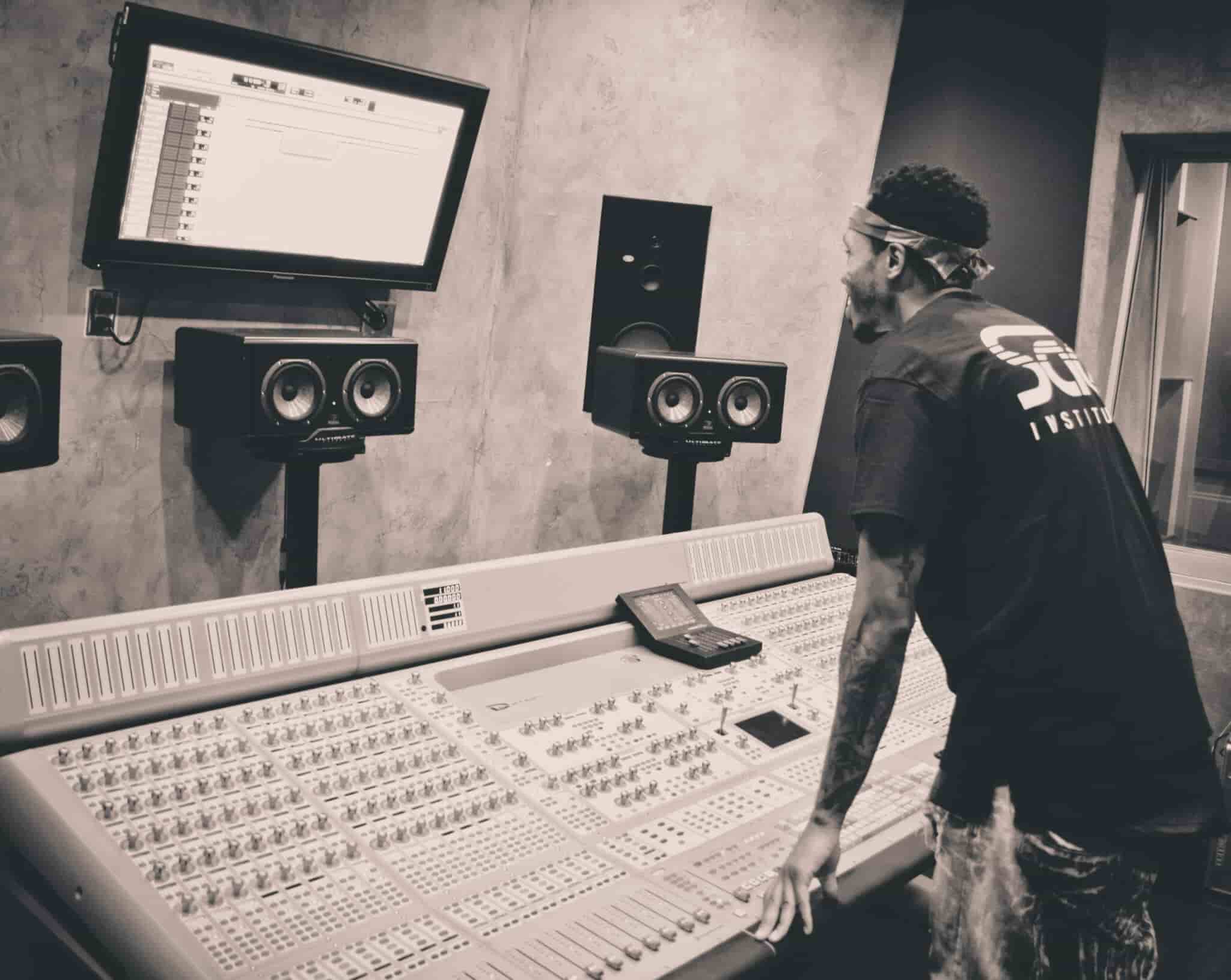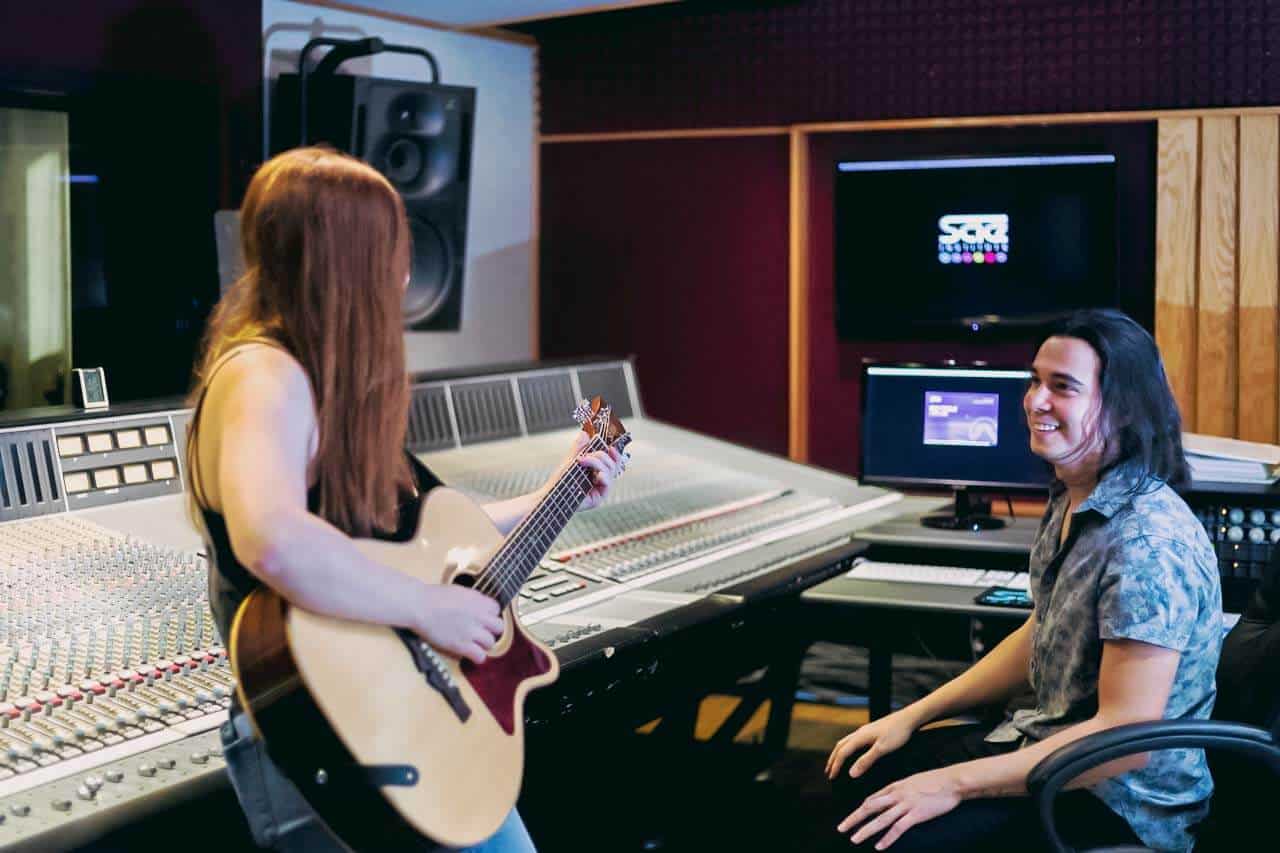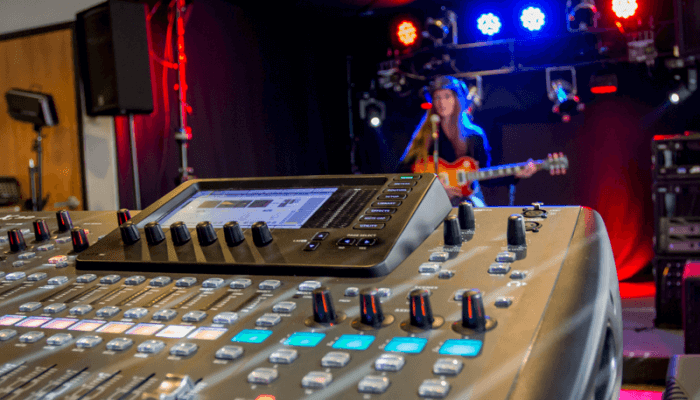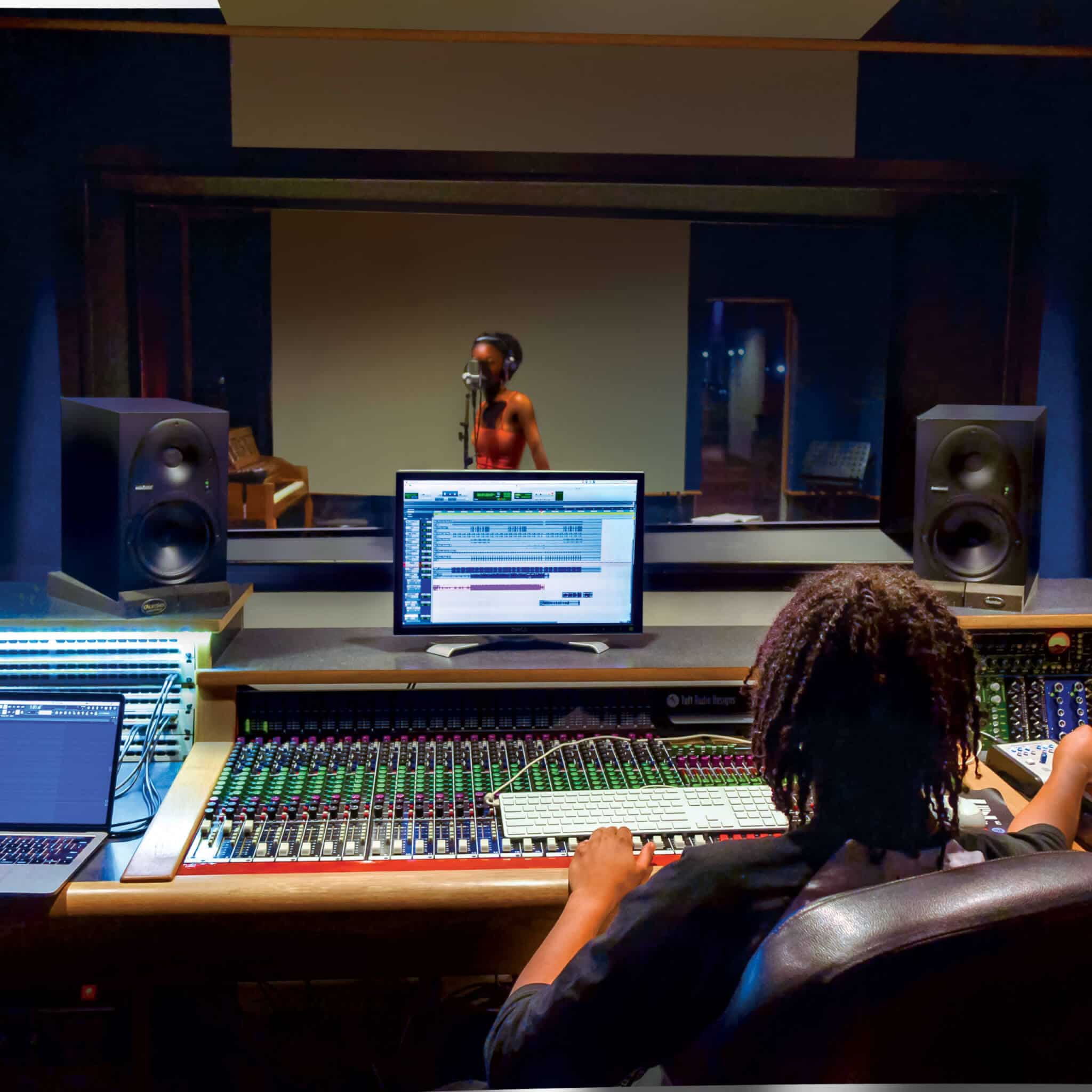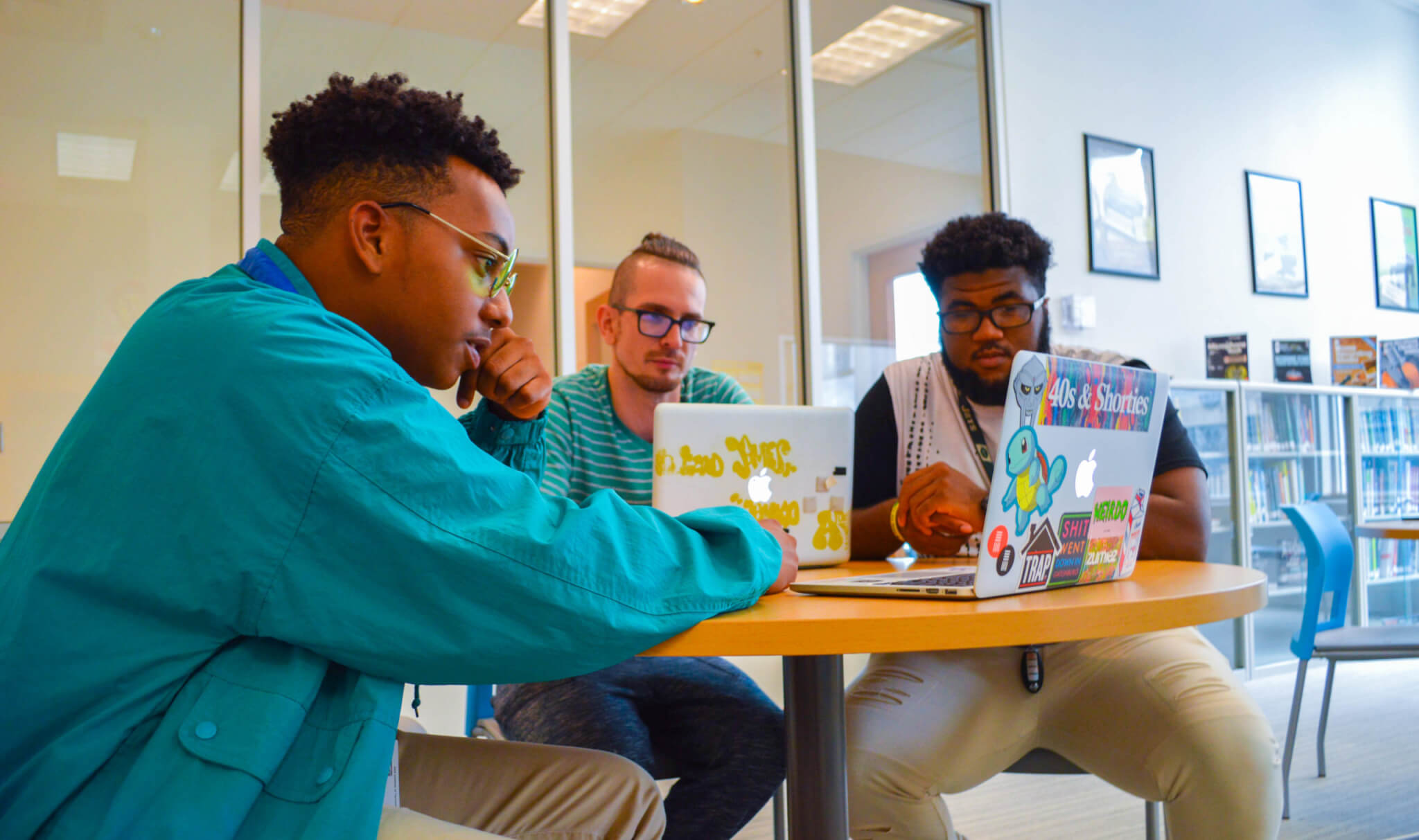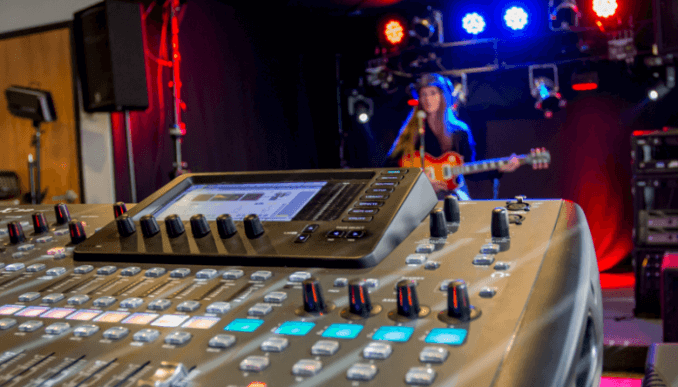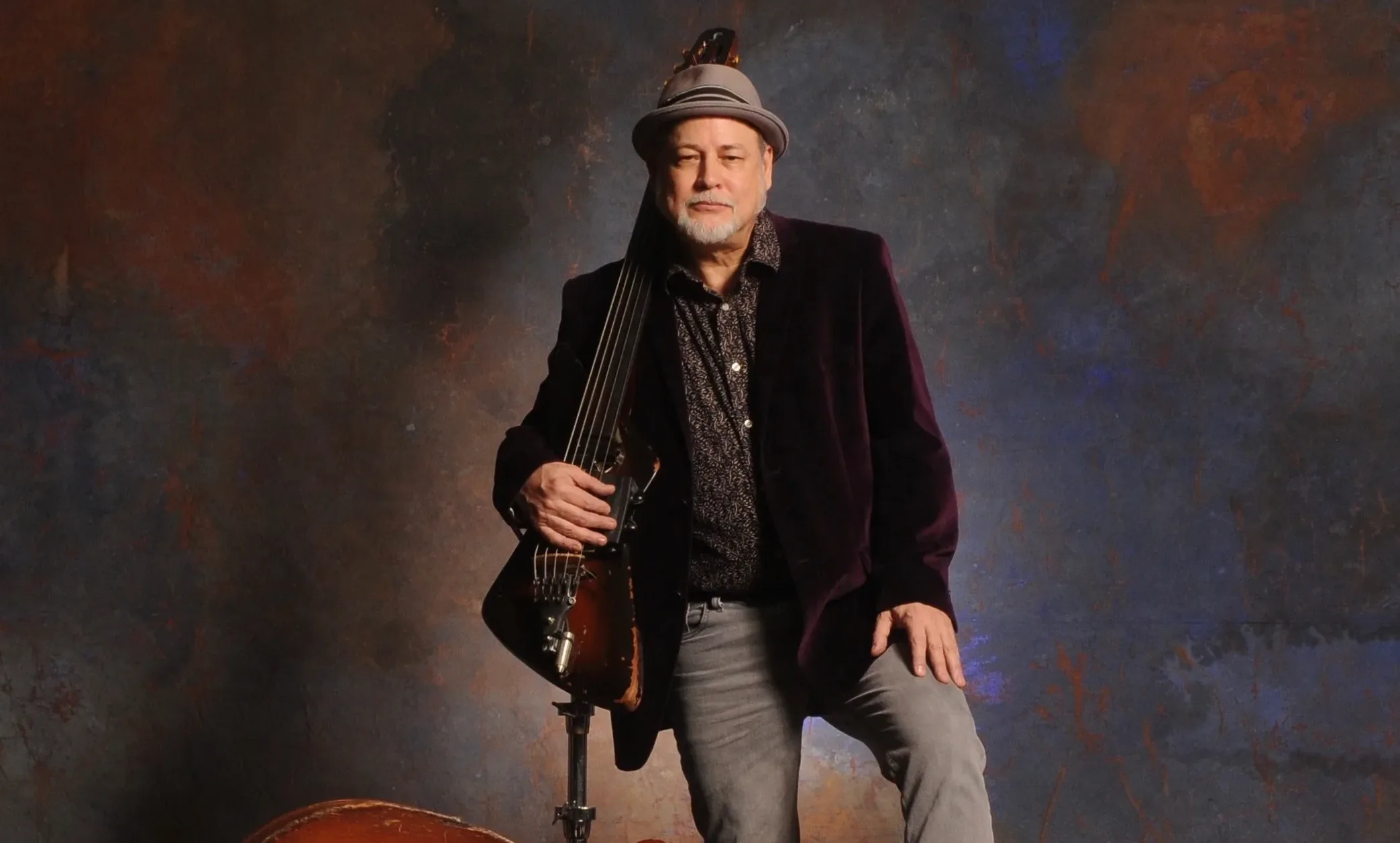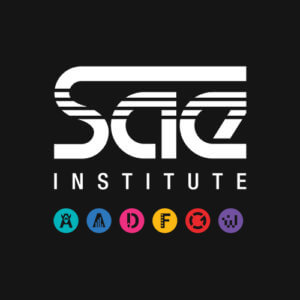
Here at SAE Institute, we pride ourselves not only on the quality of learning happening inside our classrooms but also on the important connections we have to the industry – those who not only have a range of talents and industry exposure but also a willingness to be a part of our student’s learning experience.
After a recent Songwriting Camp held at SAE Institute of Technology Nashville, we had the opportunity to interview renowned music industry veteran Dave Pomeroy, who has been on the cutting edge of Nashville’s music scene for more than 45 years as a bassist, bandleader, and producer.
Follow along as we delve into his decorated career, the important work he’s doing in the music industry, and the advice he has for up-and-coming artists and musicians.
AS A TOP SESSION BASS PLAYER, SONGWRITER, AND PRODUCER, YOU’VE WORKED WITH MANY RENOWNED ARTISTS THROUGHOUT YOUR CAREER. WHAT CAN YOU TELL US ABOUT YOUR BACKGROUND AND YOUR CREATIVE PROCESS WHEN WRITING OR RECORDING?
I started playing string bass in my school orchestra at the age of 10 and picked up the electric bass at the age of 12. I played in rock bands throughout my teens, and playing along with my favorite records, jam sessions and live gigs were my training ground. My first few recording sessions were with bands playing covers and some of our original tunes, which was always more fun for me. After I moved to Nashville in the late 70s, I toured as a sideman and gradually broke into the demo recording scene, where songwriters, publishers, and musicians all worked together to come up with a recording that would hopefully inspire a big artist to record that song. In most cases, there was no bass part, and I had the freedom – and the responsibility – to create something out of nothing. It was exciting to explore this new world, and I was fortunate to work with a lot of great people who taught me a lot. I gradually honed my chart writing chops and learned more about the technical aspects of getting a good bass tone. My big recording break was when Don Williams, who I had been touring with since 1980, started using me on his records in 1985. Suddenly I was in the presence of great studio players like Kenny Malone, Jim Horn, Billy Sanford, and Charles Cochran and had to up my game to a higher level, which somehow I was able to do. Before long, the door opened wide to more recording opportunities, with artists like Keith Whitley, Trisha Yearwood, Alan Jackson, Emmylou Harris, and many more artists. I have played on over 500 albums and six Grammy-winning records. I always concentrated on trying to find the right sound for the song whoever the artist was. It is essential to listen to what everyone else is doing, and find your spot in that ever-changing collage of sound. My 5-string electric upright bass, custom made by Harry Fleishman in the early 80s aka “The Beast” which I had bought as a self-indulgent experiment, became a sound I was known for and increased my range significantly. As I learned from Don Williams, if you put the song first, everything else will work out. I have been blessed to make records with some of my heroes like Peter Frampton, Adrian Belew, Earl Scruggs, and Elton John, and play live with Steve Winwood, Willie Nelson, and Sheryl Crow.
Regarding songwriting, I had written a few songs in my early years, but never thought about writing songs for other people. Don Williams and I co-wrote several songs and he eventually cut one of them which was a thrill. The great Texas singer/songwriter Guy Clark, who I worked with many times, turned me onto a song he heard at the Kerrville Folk Festival in Texas. I loved the tune, written by Emily Kaitz, called “The Day the Bass Players Took Over The World.” I recorded a version with 22 bass parts filling the roles of the entire band and wrote a second bridge as well. Emily was kind enough to make me a co-writer and publisher of my version of the song, and a few years later, Chet Atkins heard me play it at a gig one night. He recorded his own version with Tommy Emmanuel called “The Day Finger Pickers Took Over The World.” A few years later, I was producing an album on the Sweethearts of the Rodeo, and we needed an up-tempo jangly, positive vibe kind of song, and I co-wrote “Love It Away” with Janis Oliver and Rique Patire that was exactly what the album needed.
I have made 3 all-bass and vocal solo records, doing everything myself, which has been a fun and eye-opening experience. I believe the bass is capable of an infinite variety of sounds, and have enjoyed making music that way. My most recent solo album “Angel in the Ashes” has 41 different basses on it, and is half instrumental and half vocal. Some of my instrumental tunes come from a simple idea, and others are the product of experimentation and improvisation. The more I write, the more I seem to have those occasional moments where something seemingly falls out of the sky in almost complete form. My most recent single “Thinking “bout Willie” is a tribute to the incredible life of Willie Nelson. I wrote 90% of the song in about 10 minutes in my hotel room after seeing the first of his two 90th birthday concerts at the Hollywood Bowl. I went back a cleaned a few things up and boom- there it was. It’s nice when that happens, but you have to be open to the creative winds, wherever they blow! I have been very blessed.
YOU ARE ALSO PRESIDENT OF THE NASHVILLE MUSICIANS ASSOCIATION WHICH UNITES MUSICIANS TO PROTECT THEMSELVES AND THEIR WORK. WHY IS THAT MISSION IMPORTANT TO YOU?
I discovered early on in my career that if you want to be treated fairly, you should be working under union agreements. We played a show at Giant Stadium in 1980 with Don Williams, and I had no idea they were filming the show. A month later a clip of a song from the show “Good Ole Boys Like Me,” which was the #1 Country single, aired on America’s Top 40, and I got paid two more times for a show I was already paid for. Getting paid more than once for something you recorded is the very definition of intellectual property. The vast majority of the artists and producers who I have worked for treated me right, and as I learned over the years, that is not always the case in the music business. I got more involved with AFM Local 257 as I got off the road and stayed in town to do sessions and club gigs. After a while of getting more involved in the business of our AFM Local 257, it became clear that we needed a new generation of leaders to step up. We had much respect for our predecessors but it was time for a change on both the local, and national level. When I got elected in 2008, it sent a message to the rest of the AFM that things were changing. In 2010, we ran a Team Unity ticket and ousted the national leadership, and I was elected to the International Executive Board member for the first of three terms. In 2023, I was elected International Vice President of the AFM, and in December 2023, was re-elected to a sixth three-year term as Local 257 President.
While I never would have imagined being in this position when I moved to Nashville in 1977, it was somewhat of a logical progression, and the bottom line is, I am grateful to be able to pay it forward. I love getting musicians paid fairly for what they do, and promoting what I call the “Nashville Way” The music business doesn’t have to be a win/lose equation if everyone treats each other with respect. We have created a unique culture here, where you can get paid fairly for what you do, without selling out. I am doing all I can to make sure the ethical way of doing business can continue into the future.
HOW DO YOU SEE THE INDUSTRY CHANGING AND WHAT DO YOU THINK THAT MEANS FOR UP-AND-COMING SONGWRITERS AND MUSICIANS?
The most obvious change is the move away from physical product and downloads and streaming being the new business model of the labels. Spotify found a loophole and figured out that “interactive” streaming rates were much cheaper, based on an outdated assumption that “interactive” would involve humans and not algorithms and data. AM/FM radio also needs to be held accountable for paying musicians and artists as well as songwriters. This century-long injustice ignores the fact that the U.S. makes the majority of the World’s music, yet we can’t get our musicians overseas royalties because of the lack of reciprocity. In other words, it’s imbalance of trade. If we can pass the American Music Fairness Cat (AMFA), currently before Congress, it would free up hundreds of millions of dollars in revenue for U.S. musicians.
On the other hand, live gigs are still an experience that has great appeal to a wide variety of audiences. Streaming live concerts has become commonplace, but there is no true substitute for the in-person energy of a live concert experience. New generations of performers are constantly evolving, and renewing that special bond of an artist and their fans. If you build up a following, you can make a good living just playing live gigs. There is a business model I credit to the Grateful Dead, and carried on by Phish, Dave Matthews Band, Zac Brown, and others. Give your fans what they want and you can succeed on your own terms. New artists have media and promotion opportunities that were simply not available to their predecessors years ago and can become very successful without the traditional old-school path of radio success and endless promo. Word of mouth is more powerful than ever, and artists can go viral worldwide with or without commercial radio play. It’s all about finding your audience, and giving them what they want.
These days, multiple small revenue streams can add up to a living wage but it is important to not leave anything on the table. More and more multi-tasking musicians write, produce, engineer, and play on the songs they write, and the records that are often made using the demo tracks with editing and overdubs. It is important to recognize the different ways to earn revenue, and just because you co-wrote or produced a record, if you played on it, and it goes into any new use, you should be paid as a musician as well.
WHY IS IT IMPORTANT TO YOU TO PARTICIPATE IN STUDENT-FACING EVENTS LIKE OUR RECENT SONGWRITERS WORKSHOP AT SAE INSTITUTE NASHVILLE?
When I moved to Nashville 45 years ago, I was eager to learn, but there were no schools such as SAE around at that time, so it was a much slower process. Sharing insights into the music industry and providing useful information to people so they can make intelligent decisions is essential to the future of our industry. I was treated well by those I worked for, but there are no guarantees, so you have to arm yourself with as much useful information as you can. As far as I am concerned, there are no dumb questions, and events like the Songwriters Workshop provide an excellent opportunity to meet the next generation face-to-face in an open honest environment. I am always happy to interact with the next generation, which helps make sure That I don’t lose my perspective.
WHAT ADVICE WOULD YOU GIVE TO OTHER MUSICIANS AND SONGWRITERS WHO ARE LOOKING TO FOLLOW A SIMILAR CAREER PATH AS YOURS?
Everyone is unique but there are things to be aware of as you create your life’s journey. Some of the best decisions I have made in my life were totally based on trusting myself and my intuition, and made little practical sense at the time. In the end, they were the right decisions, and it all worked out beyond my wildest dreams. I could have played it safe, but it all made sense in the end. It is important to trust yourself and believe in what is possible. Don’t be afraid to step away from the crowd and find what makes you unique. Keep a good attitude, be nice, and work hard. You’ll be amazed at what you can accomplish. One last thought – Nashville became Music City because of the mutual respect between employers and creatives, and that is why we are thriving in these complicated. The music business doesn’t have to be win-lose, it can be a win-win when we treat each other right. That’s how we got here, and that’s how we can keep it going into the future.
To learn more about Dave and keep up with his various projects, visit his website at www.davepomeroy.com. For more information about the Nashville campus, or our Audio and Entertainment Business programs, visit us online at nashville.sae.edu. To stay tuned for more upcoming events and campus happenings, connect with us on Facebook and Instagram.
